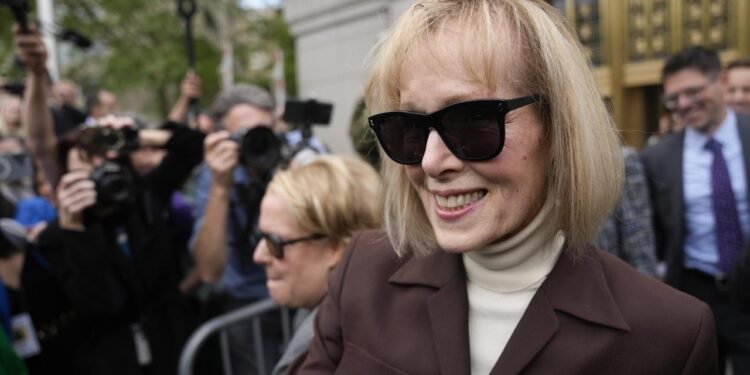Attorneys for former President Donald Trump will ask a federal appeals court on Monday to overturn rulings that have kept alive writer E. Jean Carroll’s 2019 defamation lawsuit against him.
U.S. District Judge Lewis Kaplan in July declined to dismiss Carroll’s case and limited some of Trump’s defenses.
Carroll, a former Elle magazine columnist, sued Trump in November 2019 over comments he made shortly after Carroll publicly accused him of raping her in a Manhattan department store dressing room in the 1990s. In statements Trump made denying the accusation, Trump said Carroll was “not my type” and suggested she fabricated her accusation for ulterior and improper purposes, including to increase sales of her then-forthcoming book.
A trial is scheduled for January.
The judge has already determined that Trump’s statements were defamatory, so the trial will only determine damages. Carroll is seeking $10 million.
Trump on Monday will ask the 2nd U.S. Circuit Court of Appeals to find he is immune from being liable for damages because he was president at the time he allegedly defamed Carroll.
“Defendant-Appellee’s conduct is not properly the subject of a civil damages claim since his conduct is shielded by presidential immunity,” Trump’s attorneys wrote ahead of Monday’s oral argument. “The District Court’s rejection of this defense was clearly made in error; more importantly, this flawed decision will have wide-ranging implications which threaten to disrupt the separation of powers between the Judicial Branch and the Executive Branch, and significantly diminish the latitude of protection afforded to all Presidents under the presidential immunity doctrine.”
Lawyers for Carroll said Trump waived his immunity defense early in the litigation when, in July 2020, Trump’s attorneys said Carroll could pursue her defamation claim “when the President is no longer in office.” To assert immunity now, Carroll’s attorneys wrote, “posed substantial prejudice to Carroll.”
The argument could turn on whether the panel of appellate judges believes immunity is a waivable defense or, as Trump’s attorneys plan to argue, whether immunity is non-waivable because it arises from the separation of powers.
Carroll prevailed in a second lawsuit last May that alleged defamation and battery, and she was awarded $5 million in damages. Trump is also appealing that case.









































































